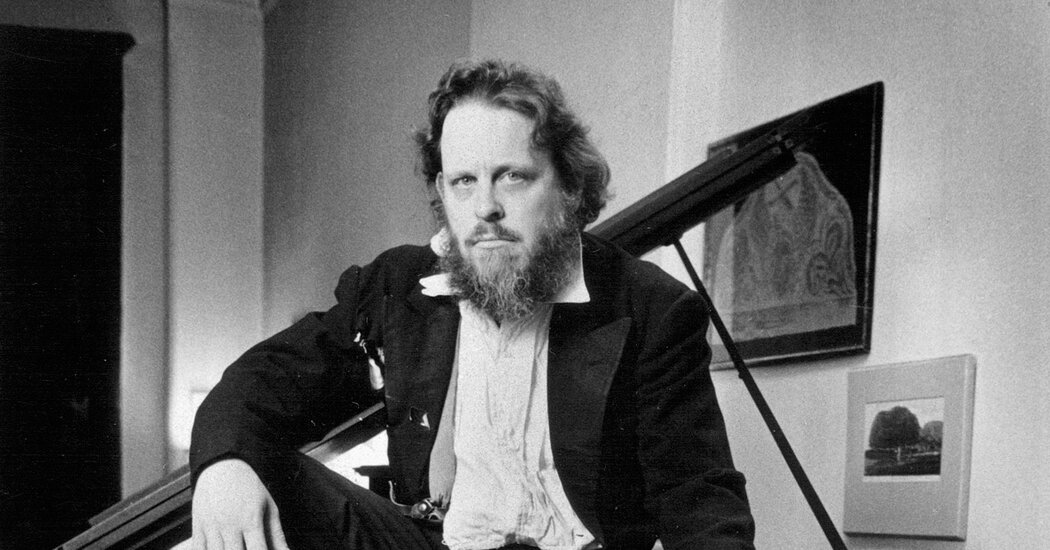This is the best summary I could come up with:
Oh, there were violins and pianos, all right, but there were also such organological oddities — all playable — as the left-handed sewer flute (made of plumbing pipes); the double-reed slide music stand; the tromboon (the bastard spawn of a trombone and a bassoon); and, most deliciously for New Yorkers of a certain vintage, the Hardart (see below), a small edifice comprising literal bells and whistles, plus a series of glass doors with sandwiches behind them.
Designed to be appreciated by novices and cognoscenti alike, P.D.Q.’s music is rife with inside jokes and broken taboos: unmoored melodies that range painfully through a panoply of keys; unstable harmonies begging for resolutions that never come; variations that have nothing whatever to do with their themes.
“The mad Bachian professor, though consummately gifted as a mimic, is also much more,” James R. Oestreich wrote of Mr. Schickele in The Times in 1992, adding, “Even his zaniest creations show independent personality and compositional integrity (of a highly perverse sort, it is true).”
(For those unfortunates born too late, or reared too far from the East Coast, to have reveled in its splendors, Horn & Hardart, a fixture in New York and Philadelphia throughout most of the 20th century, ran the first Automats, gleaming temples of low-priced gastronomy behind whose rows of coin-operated little doors beckoned worlds of macaroni and cheese, baked beans, blueberry pie and much else.)
After earning his master’s, he spent a year on a Ford Foundation grant as a composer in residence for the Los Angeles public school system and taught briefly at Swarthmore before joining the faculty of Juilliard’s extension division in 1961.
Bach, took a long sabbatical, focusing on his new radio show, “Schickele Mix.” Syndicated nationally for some 15 years, it featured him in serious discussions of music, combined with the playing of works by composers as diverse as Chopin, Gershwin and Philip Glass.
The original article contains 2,428 words, the summary contains 316 words. Saved 87%. I’m a bot and I’m open source!
His fugue for colliape, aka “The Toot Fugue” was wonderful.
His “Eine Kline Nichtmuzik” ( or something like that, sorry for my aweful German ), also.
His piece “For 2 Unfriendly Groups of Instruments” was magic.
Peter Schickele, and your University of Southern North Dakota, at Hoople ( which was a barn ), thank you for some good help making our world better.
_ /\ _


